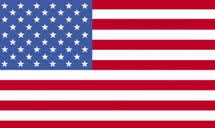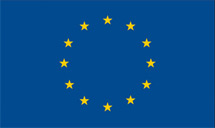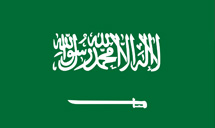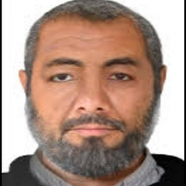Overview
Abdul Reza Shahlai is an internationally sanctioned commander in Iran’s Islamic Revolutionary Guard Corps (IRGC) who leads the Quds Force in Yemen and coordinates Iran-backed Houthi rebels there. The United States also accuses Shahlai of coordinating the failed 2011 plot to assassinate Saudi Arabia’s ambassador to the United States and a 2007 attack on U.S. troops in Iraq. Shahlai survived a U.S. assassination attempt in Yemen in early January 2020.Michael R. Gordon and Warren P. Strobel, “U.S. Targeted but Missed Senior Iranian Commander in Yemen, Officials Say,” Wall Street Journal, January 10, 2020, https://www.wsj.com/articles/u-s-targeted-but-missed-senior-iranian-commander-in-yemen-officials-say-11578680949; “Treasury Sanctions Five Individuals Tied to Iranian Plot to Assassinate the Saudi Arabian Ambassador to the United States,” U.S. Department of the Treasury, October 11, 2011, https://www.treasury.gov/press-center/press-releases/pages/tg1320.aspx.
The Quds Force is the expeditionary arm of the IRGC responsible for liaising with Iran’s terrorist proxies around the world. Shahlai has provided training and financing to the Iran-backed Houthi rebels fighting against a Saudi Arabia-led coalition in Yemen.Michael R. Gordon and Warren P. Strobel, “U.S. Targeted but Missed Senior Iranian Commander in Yemen, Officials Say,” Wall Street Journal, January 10, 2020, https://www.wsj.com/articles/u-s-targeted-but-missed-senior-iranian-commander-in-yemen-officials-say-11578680949. Previously, he provided weaponry to Iran-backed militants in Iraq. The U.S. government suspects Shahlai of responsibility for a January 20, 2007, attack in Karbala, Iraq, in which unidentified militants wearing U.S.-style military uniforms and carrying forged American identification cards and American-style M-4 rifles infiltrated a secure compound and killed five U.S. soldiers.James Glanz and Mark Mazzetti, “Iran May Have Trained Attackers That Killed 5 American Soldiers, U.S. and Iraqis Say,” New York Times, January 31, 2007, https://www.nytimes.com/2007/01/31/world/middleeast/31karbala.html; John Hudson, Missy Ryan, and Josh Dawsey, “On the day U.S. forces killed Soleimani, they launched another secret operation targeting a senior Iranian official in Yemen,” Washington Post, January 10, 2020, https://www.washingtonpost.com/world/national-security/on-the-day-us-forces-killed-soleimani-they-launched-another-secret-operation-targeting-a-senior-iranian-official-in-yemen/2020/01/10/60f86dbc-3245-11ea-898f-eb846b7e9feb_story.html.
The U.S. government also holds Shahlai responsible for a failed 2011 Quds Force operation to assassinate Saudi Arabia’s ambassador to the United States, Adel Al-Jubeir, in Washington, D.C. According to the U.S. government, Shahlai conspired with his cousin, Mansour Arbabsiar, to assassinate Jubeir. Shahlai allegedly approved $5 million in payments for Arbabsiar to use to recruit others to the plot.“Treasury Sanctions Five Individuals Tied to Iranian Plot to Assassinate the Saudi Arabian Ambassador to the United States,” U.S. Department of the Treasury, October 11, 2011, https://www.treasury.gov/press-center/press-releases/pages/tg1320.aspx. Arbabsiar unknowingly wired money to undercover FBI agents and was arrested at New York’s John F. Kennedy Airport on September 29, 2011. He pleaded guilty to participation in the failed plot and admitted he had been recruited and funded by members of the Quds Force. Arbabsiar told U.S. investigators that he acted at the behest of his cousin, a “big general” in the Iranian military.“Man Pleads Guilty In Manhattan Federal Court To Conspiring With Iranian Military Officials To Assassinate Saudi Arabian Ambassador To The United States,” U.S. Department of Justice, October 17, 2012, https://web.archive.org/web/20140408225049/http://www.justice.gov/usao/nys/pressreleases/October12/arbabsiar.php.
In December 2019, the U.S. government offered a $15 million reward for information on Shahlai and the disruption of IRGC plans.“Act of Terror – Information on… Islamic Revolutionary Guard Corps,” Rewards for Justice, accessed January 10, 2020, https://rewardsforjustice.net/english/irgc.html. U.S. forces attempted to kill Shahlai in Yemen on January 2, 2020. A U.S. airstrike killed Quds Force commander Qasem Soleimani in Iraq early on January 3. U.S. officials told the Washington Post that the United States had intended to kill both commanders and announce their deaths at the same time. The State Department did not comment on why the operation to kill Shahlai failed.Michael R. Gordon and Warren P. Strobel, “U.S. Targeted but Missed Senior Iranian Commander in Yemen, Officials Say,” Wall Street Journal, January 10, 2020, https://www.wsj.com/articles/u-s-targeted-but-missed-senior-iranian-commander-in-yemen-officials-say-11578680949.
The January 2020 U.S. strike in Yemen killed Quds Force member Mohammad Mirza’i, according to Iranian media. Shahlai reportedly went into hiding after the failed assassination attempt.Alex Emmons, “U.S. Strike on Iranian Commander in Yemen the Night of Suleimani’s Assassination Killed the Wrong Man,” Intercept, January 10, 2020, https://theintercept.com/2020/01/10/us-strike-abdul-reza-shahlai-yemen/.
Associated Groups
- Extremist entity
- Islamic Revolutionary Guard Corps (IRGC)
- Read Threat Report
- Type(s) of Organization:
- Military, terrorist, transnational, violent
- Ideologies and Affiliations:
- Islamist, Khomeinist, Shiite, state actor
- Position(s):
- Commander of the Quds Force in Yemen
The IRGC is an Iranian government agency tasked with defending the regime against internal and external threats. The IRGC uses secret police methods against its opponents within Iran, and terrorist tactics against its enemies abroad.
History
United States

The Office of Foreign Assets Control of the U.S. Department of the Treasury designated Abdul Reza Shahlai as a Specially Designated National pursuant to E.O. 13438 for threatening the peace and stability of Iraq and the Government of Iraq on September 16, 2008.“Recent OFAC Actions,” U.S. Department of the Treasury, September 16, 2008, https://www.treasury.gov/resource-center/sanctions/OFAC-Enforcement/pages/20080916.aspx; “Treasury Sanctions Five Individuals Tied to Iranian Plot to Assassinate the Saudi Arabian Ambassador to the United States,” U.S. Department of the Treasury, October 11, 2011, https://www.treasury.gov/press-center/press-releases/pages/tg1320.aspx.
The U.S. Department of the Treasury sanctioned Abdul Reza Shahlai pursuant to Executive Order (E.O.) 13224 for acting for or on behalf of the IRGC-QF on October 11, 2011.“Treasury Sanctions Five Individuals Tied to Iranian Plot to Assassinate the Saudi Arabian Ambassador to the United States,” U.S. Department of the Treasury, October 11, 2011, https://www.treasury.gov/press-center/press-releases/pages/tg1320.aspx.
European Union

The European Union added Abdul Reza Shahlai to its Consolidated Financial Sanctions list on October 17, 2011.“Consolidated List of Financial Sanctions Targets in the U.K.,” Gov.UK, last updated January 8, 2020, https://ofsistorage.blob.core.windows.net/publishlive/ConList.html; “European Union Consolidated Financial Sanctions List,” European Commission, last updated January 8, 2020.
United Kingdom

The United Kingdom added Abdul Reza Shahlai to its Consolidated List of Financial Sanctions on October 17, 2011.“Consolidated List of Financial Sanctions Targets in the U.K.,” Gov.UK, last updated January 8, 2020, https://ofsistorage.blob.core.windows.net/publishlive/ConList.html.
Saudi Arabia

Saudi Arabia has designated Abdul Reza Shahlai.“Act of Terror – Information on… Islamic Revolutionary Guard Corps,” Rewards for Justice, accessed January 10, 2020, https://rewardsforjustice.net/english/irgc.html.
Bahrain

Bahrain designated Abdul Reza Shalai in 2018.“Act of Terror – Information on… Islamic Revolutionary Guard Corps,” Rewards for Justice, accessed January 10, 2020, https://rewardsforjustice.net/english/irgc.html.
Daily Dose
Extremists: Their Words. Their Actions.
Fact:
On May 8, 2019, Taliban insurgents detonated an explosive-laden vehicle and then broke into American NGO Counterpart International’s offices in Kabul. At least seven people were killed and 24 were injured.
